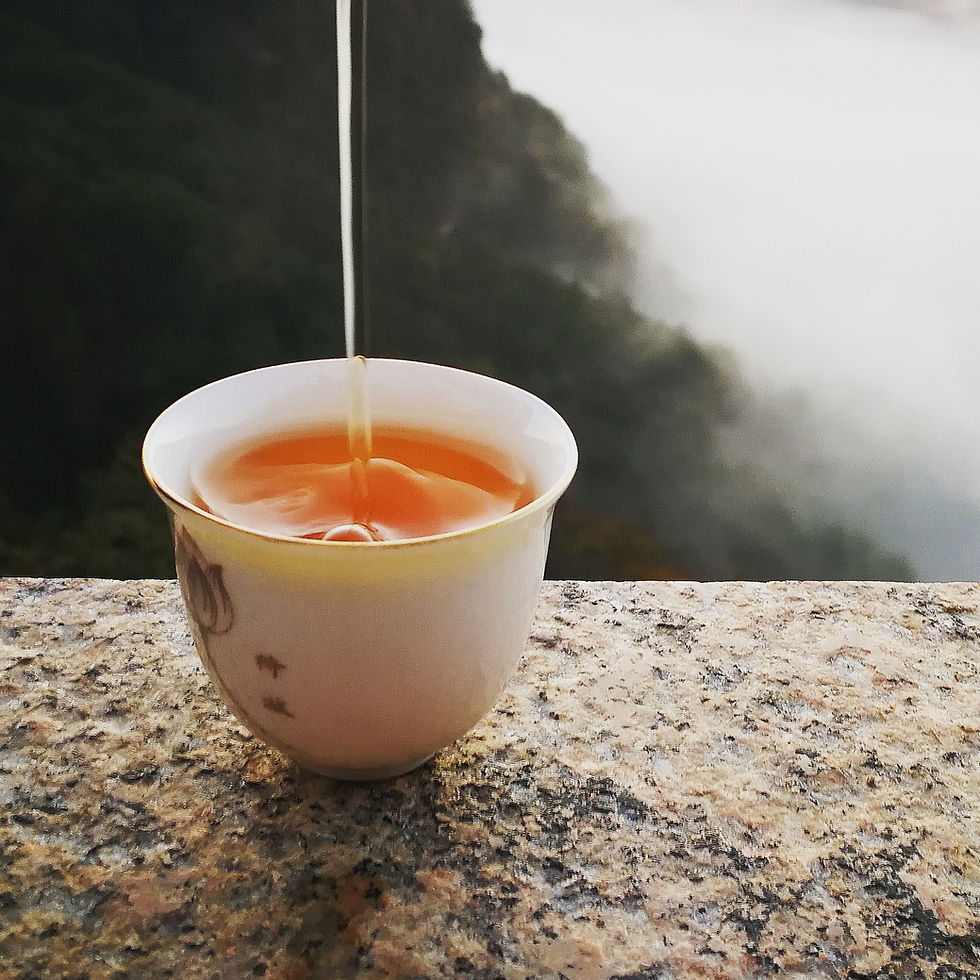In tea drinking, black tea is always considered good for the stomach.
This is not a groundless claim. As a fully fermented tea, black tea contains less tea polyphenols. As a result, black tea is less likely to irritate the stomach. To many tea drinkers who have a weaker digestive system, black tea is always the safe choice.
However, whether a black tea can truly nourish our stomach depends on how we drink it.
Black tea cannot be aged or stored for too long. We have to finish a black tea before it expires. In a normal dry, room-temperature, well-insulated, cool and clean storage environment, bulk-packaged black tea leaves can be stored for about 18 months; bagged products can be stored for 24 months; well-packaged products (in cans or aluminum foils) can be stored up to 3 years.
Like most food products, if a black tea goes beyond its expiration date, it can potentially do damage to our digestive system.
For example, one common problem with an old black tea product is the moldiness. This can be caused by the excessive air water content in the storage environment. While this can be avoided by improving the storage condition, in practice, few tea drinkers can actually maintain a perfect tea storage. A damped black tea product has not only a bad taste, but also mildews that can potentially harm our stomach.
Does this mean we need to finish our black tea right after the harvest?
Not necessarily.
Depending on how a black tea is made, it might require some “cool-down” time after the tea-making.
For instance, the authentic traditional Lapsang Souchong uses a local pinewood as firewood in various tea-making steps. During these steps, tea leaves unavoidably acquires the smell of the pinewood. (See Blog 130 for more)
Therefore, a traditional Lapsang Souchong has a somewhat aggressive taste and mouthfeel right after the tea-making. Many tea lovers might find a newly made Lapsang Souchong tastes a little bit “dry”.
Of course, drinking a newly made Lapsang Souchong can slightly irritate the stomach. Waiting 1 to 2 months after the tea-making can make a black tea milder and more nourishing. In our Lapsang Souchong’s case, the tea-making is in April, and the ideal time to drink it would start in May or June.
Finally, please don’t drink your black tea cold or iced.
Regardless the tea category, an “iced tea” is never the best way to make a good tea.
After all, most fragrance and nutrient substances in tea leaves have high-boiling temperatures. When tea leaves are infused with hot water, these substances are released into the tea soup.
If we infuse the same leaves with colder water or make the tea “iced”, these substances wouldn’t have the necessary condition to release. Consequently, we get a plain taste and not so nourishing tea.
In traditional Chinese medicine theory, the stomach is one of the most important organs. If the stomach feels cold, other organs must divert energy to it. So, a warm stomach is the key to a healthy life. A smooth black tea is the perfect choice for nourishing the stomach.
We hope you enjoyed today’s blog. As always, if you have questions or suggestions, please leave a comment, tweet us @valleybrooktea or email the author directly at zhang@valleybrooktea.com. Please also follow us on Instagram @valleybrooktea and join our mail list to get our daily tea updates and our latest promotions!
This is a Valley Brook Tea original blog. All rights reserved.




Kaiser OTC benefits provide members with discounts on over-the-counter medications, vitamins, and health essentials, promoting better health management and cost-effective wellness solutions.
Obituaries near me help you find recent death notices, providing information about funeral services, memorials, and tributes for loved ones in your area.
is traveluro legit? Many users have had mixed experiences with the platform, so it's important to read reviews and verify deals before booking.